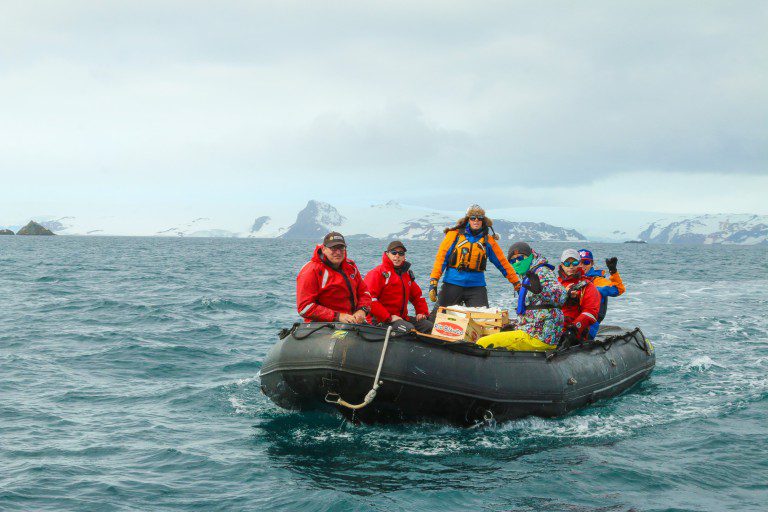Those looking to be more conscientious travellers have a lot of options, but what do all these sustainable-travel terms actually mean? Use Culture Trip’s guide to find the earth-friendly travel preference that’s right for you.
As responsible travel becomes more and more popular, buzzy travel terms continue to pop up. But what does it all mean? And how can you know if the tour you booked or the hotel you’re staying at is actually environmentally friendly or sustainable? Information continues to come out about the damage tourism can do to local environments and economies, including how travel accounts for 8 percent of greenhouse gases and how the foot traffic through national parks damages the very wonders people go there to enjoy. So do your research and use this guide to do your best to leave no trace while exploring.
Beware of ‘green tourism’
The term “green tourism” may sound friendly, but it’s often used to try to brand a hotel as environmentally friendly without practising many sustainability efforts, such as basic recycling or water-conservation programs. The term got a bad rap over the years because of rampant greenwashing, in which a hotel calls itself green solely because it places out the “please hang up your towels if you would like to reuse them” cards, which does help but is only the tip of the iceberg.
Most hotels and tours that actually practice some form of sustainability will list their practices on their website, so you can dig in and see exactly what they are taking part in. Initiatives can include having recycling programs in place, using environmentally friendly cleaning supplies, making room keys out of sustainable materials instead of plastic or having a water-conservation program. Look for “ecotourism” and “sustainable tourism”; both terms refer to practices that try to minimize the negative impact of visitors while preserving local biodiversity and respecting local culture. There is no legal regulation of these terms, but they are newer than “green tourism” and have more specific definitions, and most tourism organizations that use them will explain their specific methods of reducing environmental impact. “Ecotourism” and “sustainable tourism” are different, so it can be helpful to talk about some of their differences.
Ecotourism
Ecotourism, as defined by the International Ecotourism Society (TIES), is “responsible travel to natural areas that conserves the environment, sustains the well-being of the local people, and involves interpretation and education.” This kind of travel is geared towards the conservation and preservation of wildlife. This term will rarely be used to describe urban tourism because it is about getting out into the natural world.
There is less of an emphasis on where you stay and more on what you do while you’re there. Those participating in ecotourism make sure any sites visited are protected from outside or unnatural influence and use local guides to shape a travel experience. If you are looking to experience an African safari in Uganda or walk through a rainforest in Brazil, you might want to keep an eye out for ecotourism companies.
Those interested in ecotourism experiences in Thailand might check out the Gibbon Rehabilitation Project or a homestay on Ko Yo Island. Ecotourism experiences in New Zealand might include a hike in Mt. Cook National Park or a visit to the glowworm caves in Waitomo Caves.
Sustainable tourism
The UN World Tourism Organization (UNWTO) defines sustainable tourism as “refer[ing] to the environmental, economic and socio-cultural aspects of tourism development. A suitable balance must be established between these three dimensions to guarantee its long term sustainability.” With a slightly wider focus than ecotourism, sustainable tourism includes making sure that communities are being paid fairly and would include urban destinations such as Mexico City, Singapore or Thessaloniki, where one might not automatically think of the need for environmental sustainability.
The Rainforest Alliance offers certifications to show that hotels and tours are sustainable and doing their part to protect the natural wildlife of Latin America and the Caribbean, popular destinations for tourists who want to experience the magic of the rainforest. To assist merchants seeking to earn this certification, the Global Sustainable Tourism Council offers training modules and technical assistance to address the specific needs of each company; it also audits companies to make sure they are up to standard.
Do your own research as well and look up what sustainable initiatives tours and hotels are taking part in before you book. Most hotels and tour companies do not participate in any sustainability efforts, although this is changing as consumer demand shifts. If a company mentions anything at all on its site, it is a good start.
Read the full article at culture trip: https://theculturetrip.com/north-america/usa/articles/what-is-the-difference-between-green-eco-and-sustainable-tourism/?fbclid=IwAR3p7rfXl87OkugTMYXKXKVf-U5oJzRRAyF25r6IGN943Yz0dlDNHQ7hmDk
